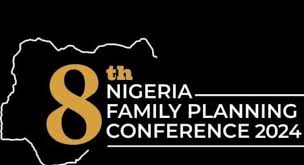By Muhammad Amaan
Stakeholders have called for an increased efforts to engage the Interfaith/faith-based institutions on Family Planning (FP) services for deeper dives.
This was part of a communique issued by the Chairman of the Local Organising Committee (LOC), Dr. Ejike Oji, at the 8th Nigeria Family Planning Conference (NFPC), which took place from December 2nd to 6th at the Abuja Continental Hotel.
The conference was organised by the Association for the Advancement of Family Planning (AAFP) in partnership with the Federal Ministry of Health and other key stakeholders.
Dr Oji said, unless efforts are increased to engage the Interfaith/faith-based institutions on FP for deeper dives, it may continue to be difficult to reduce faith-inclined barriers to accessing FP services.
It also encouraged the government to review and update existing faith- based advocacy policies and handbooks to ensure their continued relevance and effectiveness.
The communique added that faith-based leaders should move to advocate for FP in ways that are more visible and practical.
“Religious leaders create avenues for the acceptance of modern contraceptive methods into religious teachings. Religious leaders should involve and engage men in family planning discussions since they are largely the decision makers in society; and the religious leaders endeavour to incorporate new learnings into their activities, push for greater equity, and make Family Planning a reality.
“Government and partners should promote homegrown solutions for providing FP services (including identified and proven good practices), especially working with community leadership and the WDCs to ensure stronger male involvement in FP,” part of the communique read.
Dr Oji also called on the stakeholders to strive to strengthen the collective movement toward achieving universal access to family planning by 2030 as an essential element of UHC.
He said all stakeholders should contribute to the evidence (research, and lessons learned) about the power of family planning and its inter-connectedness with UHC.
The communique added that, “Health systems and programmes at all levels including religious and traditional leaders as gatekeepers should advance the movement toward universal access to family planning services and commodities for all.
“Government at all levels prioritise establishing budget lines and timely releases of funds for family planning and Health Promotion activities at all levels. Integrate the interfaith updates into the existing RHTWG quarterly meetings. Youths should also be partners in the conceptualisation and rollout of FP2030’s excellence centre.
“Development partners and stakeholders explore ways to sustain their support for reproductive healthcare services in the country including effective family planning services, information, and education.
“The leadership of the Conference should hold meetings with members of the National Assembly and political leadership to take the issues from this conference further.”
It also recommended that governments increase their commitment to family planning at all levels as this is key to achieving UHC in Nigeria.
“Since the age of sexual debut in Nigeria is 15 years – NDHS), there is a need to provide them with SRH counselling services, especially FP,” Dr Oji added.
“Youths and youth-led organisations be made aware of the FP2030 commitments given their role in driving advocacy and accountability in the society. Expand RH/FP Services in Rural Areas: Use technology and self-care interventions to improve access. Build youth capacity through mentorship, networking, and training.
“Increase Funding for Youth Programs: Advocate for appropriate budget allocations for FP services for National and sub-national,” it added.
The communique further recommended that the Federal Ministry of Education should be a major stakeholder in FP and ensure the inclusion of FP in the educational curriculum at all levels of education.
“The Federal Ministry of Women’s Affairs and the National Orientation Agency were encouraged to include Family Planning issues in their Advocacy and Sensitisation Programmes. Federal and State Governments should establish and fund budget lines for family planning in line with the approval of the National Council on Health.”




